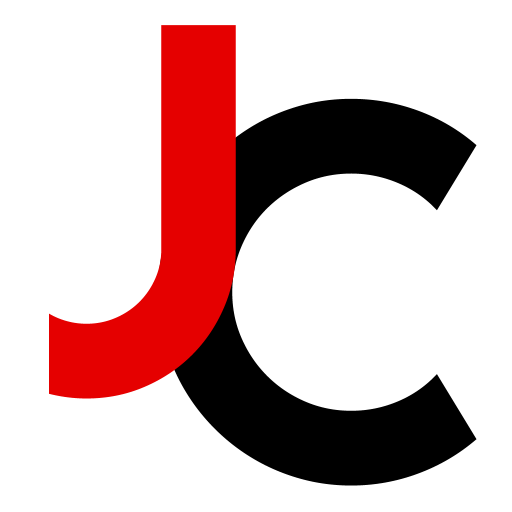As for the tax haven in the past, the era of medical haven might come.
This short article presents the high possibility of isolated (or not) hospitals providing high end and low cost medical care. “Isolated” in the sense of law and jurisdiction. “Low cost” is the sense of reasonable price, at the opposite of multi-million dollar treatments.
Let’s take a look at tax havens. Also called financial paradise, it describes places or countries with very low taxation rates, even as low as zero. Fiscal havens also follow rules of financial secrecy, meaning no or few information is shared with foreign authorities.
Are fiscal havens having impacts on the global economy? Yes, even if the numbers are not that easy to gather and confirm. In 2013, the OECD (Organisation for Economic Co-operation and Development) presented an Action Plan on Base Erosion and Profit Shifting. In 2019, the OECD estimated EUR 4.9 trillion was held in offshore accounts [1].
Turning our attention now to low cost medical care. Some medical interventions are costly and some countries try to create businesses addressing this market. Dental care is a good example. Dental tourism is the concept of traveling to a country to benefit from low cost dental care, with sometimes a x10 factor in savings. The health risk might be higher, even if now, some clinics have expanded their reputation, while maintaining a significantly lower cost than in most countries.
The next step for a new economy might be a mix: medical units leveraging opportunities from unregulated zones to provide rare or expensive medical treatments. While diving into bioengineering and gene editing, I found obvious that two types of medical treatment might be targeted: Expensive treatment for rare disease and medical treatment with complex ethics.
Treatment of rare diseases might come with a high treatment cost as the number of patients is very low. The global profit of a company is the profit of a product multiplied by the number of clients being this product, minus the costs. So for rare diseases, pharmaceutical companies have to impose costly treatments in order to cover their R&D investment costs, having as a market constraint a low number of clients/patients. Gene therapy to treat the eye disorder, Leber congenital amaurosis [3] might come to market with a $ 850 000 price tag. Exondys 51, a treatment for a rare form of muscular dystrophy sold by Sarepta Therapeutic has an estimated annual cost for the patients of $1 million. More examples follow here [4].
Would medical havens just target rare diseases? No, they will also target treatments with complex ethics, like fetus bioengineering. Modifying genes to avoid diseases developed during pregnancy could provide a common ground where a large majority of people agree. However, modifying genes to provide some on-demand traits modification, like blue eyes, perfect eyesight…, might start to bother and scare more people. The modifications would be more cosmetically motivated, in the sense they would not be a matter of life or death. And what about gene editing to enhance human performances? Modifying the human genomic of an adult has a low chance of creating a possible transmitted gene alteration. However, on a fetus, it might create highly transmitted traits, with a long-term impact on the genotypes and phenotypes we are aware of today. As for other ethical and competitive complex topics, most countries will sign common framework agreements as to what is permissible to do. Enter the medical havens, exceptions leading new economies with less restrictive jurisdictions.
Are pharmaceutical companies filing patents for rare diseases, covering all the countries on earth? If not, what about low cost reengineering? If yes, what about leveraging legal advantages framed by new economies? Due to new technologies, the cost of production and even cost of development has decreased by a factor of hundreds or thousands. To deliver a new drug on a market, laboratories must follow a four step process: Research, Testing, Review and Approval. Research and Testing are the main important costs. For diseases with a very high mortality rate and low life expectancy, laboratories aim to simplify the testing procedures required for approval. Here also, we can see how less constraining jurisdiction might take a lead.
Would those medical havens be small areas of isolated lands, as Jersey or the Cayman Islands are for tax optimization? No, they might be whole countries. Countries wanting to leverage techniques like CRISPR [5] to build up a new economy addressing an existing market and also a coming one. Making reference to the ‘toothbrush business mindset’ we surmise that a way to evaluate a business potential of a product could be based on how many people might use it, and how many times per day. Are gene editing services part of the future of our daily life, from our conception, to our cures for diseases [6] and finally to our delayed death [7]? If yes, be prepared to see the emergence of medical havens embracing new opportunities.
JC
PS: while writing this article I came across this really cool video from Kurzgesagt – In a Nutshell
PS2: do you want to concretely understand what gene editing is? The Odin project presents interesting courses and kits.
Update 9/7/2021: I just came across this article: https://www.capitalfrontiers.com/single-post/2020/06/10/cities-for-people-or-people-for-cities-neom-is-breeding-a-new-city-built-around-genetic-e
Is it a quod erat demonstrandum?
Ref:
[1] http://www.oecd.org/tax/implementation-of-tax-transparency-initiative-delivering-concrete-and-impressive-results.htm
[2] https://www.oecd.org/ctp/BEPSActionPlan.pdf
[3] https://www.wsj.com/articles/high-hopes-for-a-gene-therapy-come-with-fears-over-cost-1537796721
[4] https://www.nytimes.com/2019/08/25/health/drug-prices-rare-diseases.html
[5] https://www.nature.com/articles/nprot.2013.143
[6] https://www.nature.com/news/first-crispr-clinical-trial-gets-green-light-from-us-panel-1.20137
[7] https://www.nature.com/articles/srep15145

